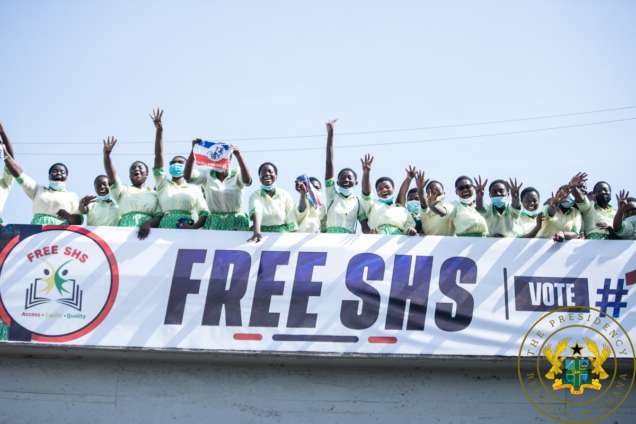The government of Ghana’s proposal to enshrine the Free Senior High School (SHS) policy into law has sparked widespread debate and varying opinions. The Free SHS bill aims to solidify the policy, ensuring its continuity and implementation by all successive governments.
While the idea of providing free education to all SHS students is laudable, concerns have been raised by key stakeholders about the potential implications and the manner in which the policy is being advanced.
The Ghana National Association of Private Schools (GNAPS) has expressed significant concerns about the proposed Free Senior High School (SHS) Bill slated to be presented before Parliament. GNAPS’ caution to the government to proceed with careful deliberation and ample stakeholder consultation is both timely and crucial.
“GNAPS is worried because characteristic of how important decisions on education are handled in this country, private schools, which account for 49% of educational establishments and 33% of pre-tertiary enrolments in Ghana, have been side-lined in deliberations on the Bill.”
Ghana National Association of Private Schools (GNAPS)
According to GNAPS, its exclusion from the deliberations raises concerns about the bill’s inclusivity and the potential impact on private educational institutions.
Inclusive dialogue is not merely a courtesy; it is a necessity to ensure that any changes to the education system are both beneficial and sustainable. The government should recognize that private schools play a pivotal role in the educational landscape of Ghana. Their insights and experiences are invaluable in crafting policies that are realistic and implementable.
The government should have gleaned valuable lessons from the Free SHS policy’s initial rollout. The lack of consultation with private schools led to significant challenges, including overcrowding that necessitated the Double Track System, feeding issues, and overburdened staff.
These problems could have been mitigated, if not entirely avoided, had there been thorough and inclusive stakeholder consultations prior to implementation.
Repeating the same mistake with the proposed Free SHS Bill could lead to similarly avoidable issues. It is imperative that the government does not hastily push the Bill through Parliament without addressing the potential pitfalls identified through comprehensive consultations.
Need for Comprehensive Consultations
Before the proposed Bill is introduced to Parliament, GNAPS urged the Minister of Education to convene a series of consultations with all relevant stakeholders. This includes not only GNAPS but also other educational bodies, teachers’ associations, and parent groups.
The former Rector of the Ghana Institute of Management and Public Administration (GIMPA), Professor Stephen Adei, echoed the need for broader stakeholder engagement. He emphasized the importance of transparency and inclusivity in the legislative process.
“I believe that whatever the law is when it comes out, it will give some of us an opportunity to know what the government is thinking about, what they are pushing forward, and we will either ask them to be treated, opposed or reject it.”
Professor Stephen Adei, former Rector GIMPA
Professor Adei’s stance highlights a crucial point: the formulation of policies, especially those as impactful as the Free SHS, should be participatory, involving all relevant stakeholders to ensure a holistic and sustainable approach.
One particularly contentious aspect of the proposed Bill is the potential cancellation of the Basic Education Certificate Examination (BECE). The BECE has long served as a critical external assessment tool, helping to identify students’ strengths and weaknesses and guiding necessary interventions to achieve desired learning outcomes.
“We strongly object to the cancellation of BECE which serves as a major measuring rod of learner attainment after nine years of basic education.”
Ghana National Association of Private Schools (GNAPS)
GNAPS’ objection to this proposed cancellation is well-founded. Periodic assessments like the BECE are essential for maintaining educational standards and ensuring that students receive the support they need to succeed.
Eliminating the BECE without a viable alternative risk leaving gaps in the assessment process, which could ultimately undermine educational quality. It is crucial that any decision to alter the assessment framework is made with input from all relevant stakeholders, including private schools, to ensure that the new system is robust and effective.
The concerns raised by GNAPS and Professor Adei underscore a broader issue: the balance between public and private interests in the educational sector. While the government’s commitment to providing free education is commendable, it is equally important to recognize and address the contributions and concerns of private educational institutions.
A collaborative approach, where the government and private sector work together, can lead to a more robust and resilient educational system.
READ ALSO: Information Minister Warns Media Over “Cook-a-thon Embarrassment”




















